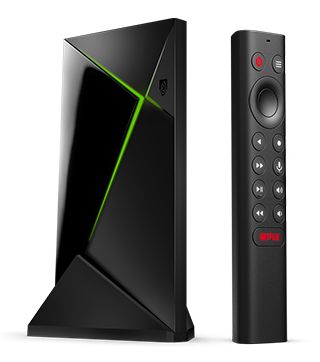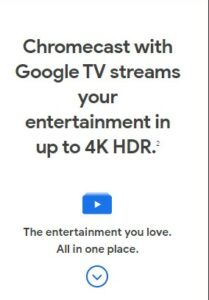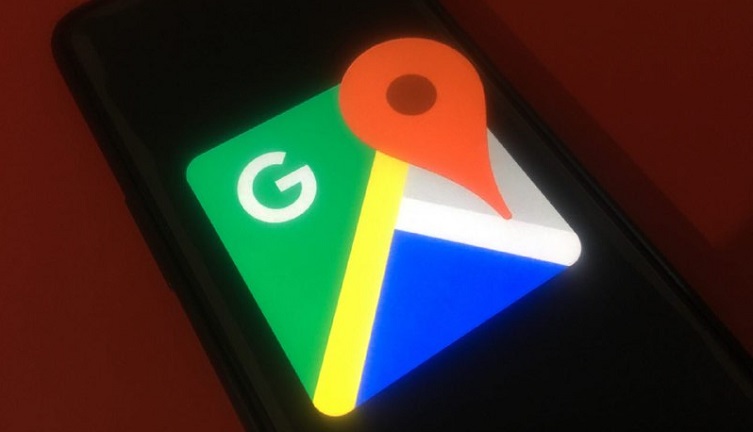Time for a #poll!
— PiunikaWeb (@PiunikaWeb) April 25, 2021
Should Google add support for NTFS, exFAT & other file formats to Chromecast with Google TV?
Vote below and read our opinion here: https://t.co/cP3WDX0KVu#GoogleTV #Chromecast #NTFS #exFAT #opinionpoll
New updates are being added to the bottom of the story…
Original story (from April 25, 2021) follows:
Apple recently held its Spring Loaded event, in the process unveiling several products and services. One notable development was the revamped Apple TV 4K.
As part of this revamped Apple TV experience, Cupertino announced a new Siri-powered remote control. In typical Apple fashion, the remote, which is compatible with older Apple TV models, is valued at $59.
This is a tad pricier than the entire Chromecast with Google TV package, whose Assistant-powered remote costs just $19.99 separately.

I’ve had it alongside the Chromecast with Google TV for a few months now and truth be told, I’m really liking my general experience using the whole package.
The small nature of the remote (compared to Apple’s) might turn off some, but that’s something I can live with. Still, it’s far from the worst issue with the new Chromecast, at least in my experience.
My main bone of contention with Google is the amount of onboard storage the new Chromecast comes with. For the uninitiated, there’s only 8GB of storage.
And unlike your typical Android TV boxes, the dongle has no port for expandable storage. This means you often have to uninstall some apps to create room for others or risk running out of storage space.

Sure, the Chromecast with Google TV supports attaching external storage via an adapter (USB-C hub). However, the dongle only detects drives formatted in FAT32 file system.
While some of you might be okay with this, unfortunately, the size limitations that come with FAT32 file format make this unideal for my use case.
If still in the dark, well, let’s quickly break it down for you.
The most modern file system of the three is NTFS. If you’ve formatted any storage drive on a Windows PC, well, the default file format is NTFS.
The less popular exFAT file system, which supports more devices and operating systems than NTFS, on the other hand, is an updated version of FAT32 or rather the latter’s replacement.

FAT32 is still quite common due to the greater compatibility it offers with other operating systems. But due to its age, FAT32 isn’t efficient like NTFS or exFAT for that matter and, in fact, has a limited feature set.
One of the limitations that happens to be the major cause of my dissatisfaction with the Chromecast with Google TV is that FAT32 drives can’t hold individual files of over 4GB in size.
This means playing 4K videos/movies/TV shows that can easily approach or stretch beyond the 8GB mark from an external drive isn’t possible on the newest Google Chromecast. Don’t even get me started with 8K content.
Since Google released its newest Chromecast into a world full of 4K content, having the dongle support NTFS and/or exFAT file formats would have been a much welcome idea.

Whether this functionality can be enabled via a firmware update isn’t known, but I’d like a future where the Chromecast supports multiple file formats, beginning with the successor to the current model.
Support for NTFS and exFAT file formats should eliminate file-size limits in future Chromecast units, with the latter offering complementary services where both FAT32 & NTFS may fail.
What are your thoughts? Do you think support for NTFS and exFAT file formats is a must in the next Chromecast with Google TV unit? Let us know in your comments and Twitter poll below.
Update 1 (May 02, 2021)
The poll results are out.
Out of those who shared their opinion, 50% say Google must add support for NTFS, exFAT & other file formats to Chromecast with Google TV, 7.1% aren’t sure what is taking time, while the rest of 42.9% feel it’s not required.
PiunikaWeb started as purely an investigative tech journalism website with main focus on ‘breaking’ or ‘exclusive’ news. In no time, our stories got picked up by the likes of Forbes, Foxnews, Gizmodo, TechCrunch, Engadget, The Verge, Macrumors, and many others. Want to know more about us? Head here.

![[Poll results out] I hope Chromecast with Google TV gets support for NTFS & exFAT file formats in future [Poll results out] I hope Chromecast with Google TV gets support for NTFS & exFAT file formats in future](https://stage.onepluscorner.com/wp-content/uploads/2021/04/Chromecast-with-Google-TV-22.jpg)
